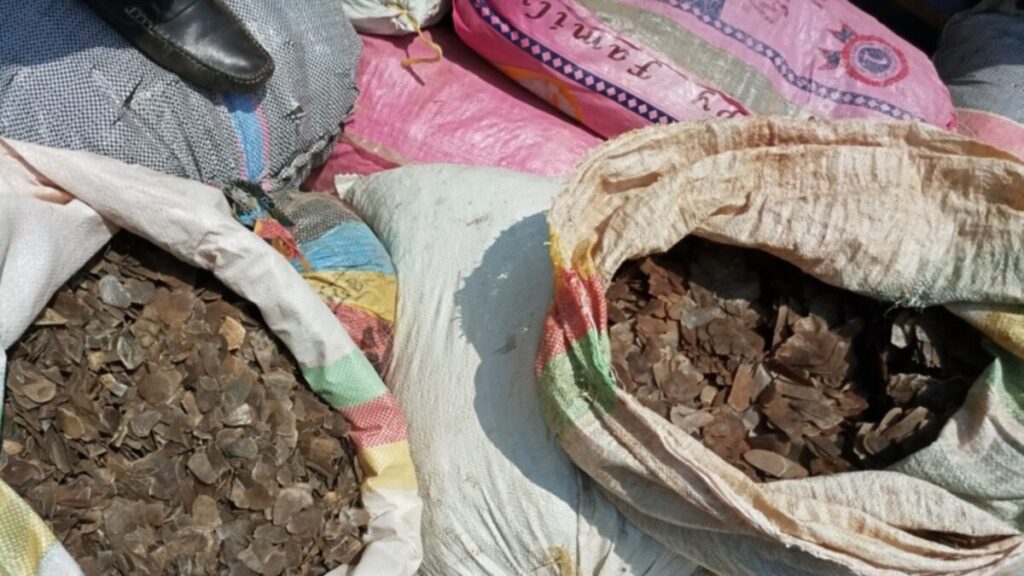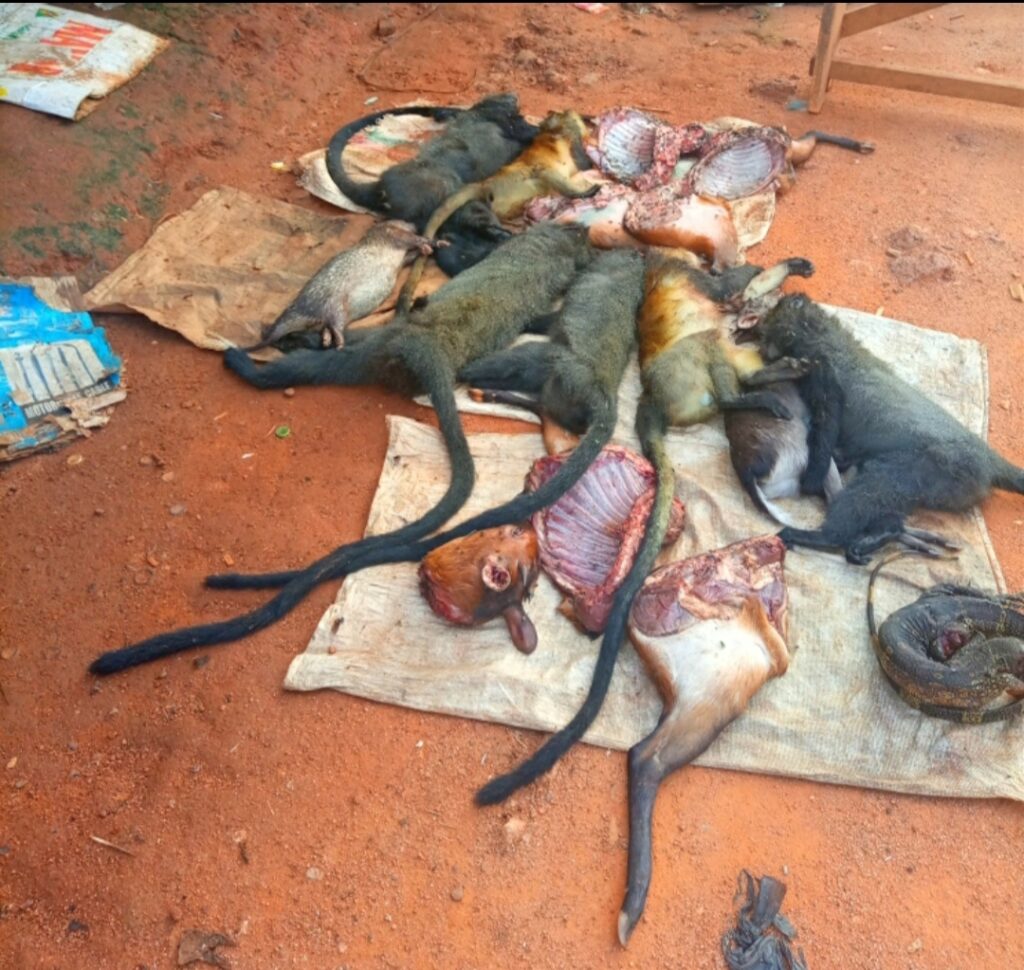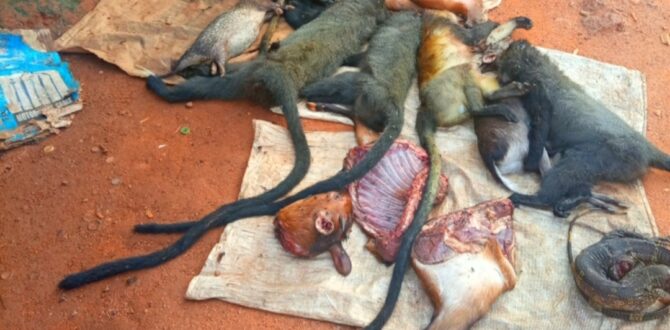Cameroon is host to three species of pangolins (white-bellied, black-bellied and giant pangolins) and two species of chimpanzees (central and the Nigeria-Cameroon chimpanzees), which are classified as endangered or vulnerable on the IUCN Red List. Despite this, the country’s wildlife sanctuary, national parks, and other biodiversity hotspots are increasingly being emptied of pangolins, great apes, and other wildlife species as wildlife trafficking continues unabated.
Case of Pangolins

A report on the operations of the Last Great Ape Organization (LAGA) in East, Littoral, West and South regions of Cameroon indicates that over 700 kg of pangolin scales were seized from wildlife traffickers between January and June 2022. 242kg of the pangolin scales were seized, February 2022, in the East Region from a trafficker, with more pangolins and monkey carcasses found in a refrigerator at his residence. Some 476kg of pangolin scales were also seized from traffickers in the Centre Region of Cameroon in April 2022. These traffickers were arrested.
Case of Primates and other species

The operations of LAGA according to its 2022 First Semester Report, also led to the seizure of two baby chimpanzees, March 2022, in the Centre Region of Cameroon from a traditional authority, who had iron cages to detain and imprison wild animals including the baby chimps. The traditional authority is said to have been arrested.
In the South Region of Cameroon, the Report indicates that 5 elephant tusks, chimpanzee meat, and parts of several other wildlife species were seized in Sangmelima from 6 traffickers, who were also arrested. Leopard skins and a civet skin were also seized from a trafficker close to the West Region of Cameroon. The trafficker was arrested.
Pangolins, chimpanzees, and elephants are Category “A” animals under the 1994 Cameroon Forestry Law. The maximum penalties for killing any of these protected species according to the Law are 3 years of imprisonment and/ or FCFA 10 Million.
By Ndimuh B. Shancho







